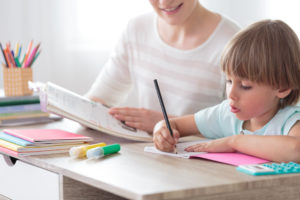Routines are part of everyday life, whether we know it or not. We wake up, have breakfast, some of us have coffee or do exercise, we get dressed, go to work or school, have dinner, watch television and then sleep. Some of us might even squeeze in a glass of wine or three, or religiously watch Married at First Sight on TV. Then we wake up and do it all again! Everyone has a different routine; they are there, and exist, to help us manage our day to day lives.
What is a routine?
A routine sets out how a family or person spends their day, so that they get things done, spend time together and have fun! Routines help us to know what to do, when to do it, in what order and how often we should do it. They help children to understand what is important as a family, like sharing a big hug every morning at school drop off, or a special kiss goodnight to show love for one another.
How can routines help?
Routines can be very useful, with children needing them just as much as adults…here’s why:
- Routines help children to feel safe. A predictable home environment helps children to feel secure and looked after. Having a predictable family environment and routine can help a child better manage change and unpredictability, like moving houses or the birth of a sibling. Knowing what is going to happen next can help to reduce anxiety and to feel in control of the day.
- Routines develop healthy habits. Routines can teach children to regularly do what’s good for our health such as brushing our teeth, washing our hands, or exercising.
- Routines help develop skills and responsibility. Children who practice skills regularly build confidence and independence. As we teach and support our children to complete daily living tasks such as dressing and toileting, they develop competence and gradually need less support. Children feel proud when they learn and master challenging skills.
- Routines help children adapt to other environments. School is full of routines, such as singing a good morning song, eating fruit break, playing with friends, and completing schoolwork. Children who are used to following routines often find the transition to school less stressful.
Routines are also good for adults and parents! Life can get very busy at times and routines can help with feeling organised and more in control of your life, which helps with stress.
Why are some routines better than others.
Good routines are well planned, consistent, and predictable. A well-planned routine incorporates a reasonable and fair number of activities to do across the day, with a range of tasks that need to be done, as well as leisure and relaxation. Giving children some choice as part of their routine can help children to feel more in control, valued and heard. It is also important to take into consideration your child’s ability to cope with changing demands, as some children do not need as much structure, whereas other children thrive on routines.
How do I establish a routine at home?
There are a few things that you will need to consider when creating a routine:
- What activities does your child need to do on a day-to-day basis?
- What activities are difficult? Activities that are difficult may require more time, patience, and support. Ensure you and your child have enough time to learn new or challenging tasks.
- Are there any extra-curricular activities that your children participate in?
- How does your child learn or follow instructions best? Some children benefit from following a visual schedule, others require demonstration, bigger tasks broken into smaller ones, verbal prompting or physical support.
- Is the routine specific to the child or the entire family?
- Where will the routine be implemented?
- Am I ready to implement these routines?
- Is there an upcoming event that may disrupt the routine?
My top 10 tips for rocking-routines:
- Give your child warning in advance that he or she will need to finish one activity and move on to the next.
- Talk about any changes in the routine prior to them happening, so that your child can ask you any questions and better understand what they are required to do.
- Use visual timers to helps children keep track of the time, especially during leisure activities like watching TV.
- Use a visual schedule for children who are visual learners. Check-in to make sure your child understands what the pictures mean.
- Ensure your child knows what to do and how to do each task before expecting them to do it independently.
- Consistency is key – doing tasks regularly builds skills and confidence. Sometimes it can be challenging for a child to transition from an unstructured environment to a structured one. With consistency, your child will adapt and settle into the new routine.
- Be prepared – for busy morning routines, prepare the night before. If possible, complete any tasks the night before to lighten the load in the morning, such as organising and laying out uniforms or packing bags.
- Role model healthy habits and activities such as washing hands after toileting, eating healthy foods and regularly engaging in relaxation activities.
- Schedule in 1:1 time with your child to have fun together and build a strong bond.
- Allow flexibility in your schedule. Spontaneity and creativity are important factors in a child’s life. Spend extra time enjoying the little things. Sometimes the dishes can wait!
Routines are beneficial for children as they set expectations and habits. Parents also benefit from routines as it helps make the completion of daily activities smoother. If you have tried the above tips to help with routines and your home continues to feel chaotic in the morning as everyone rushes to get ready or at night when trying to wind down for bedtime, an Occupational Therapist can assist with setting up a routine that is suitable for your family and put strategies in place to help your child complete routines.
Beam Health offers personalised support from skilled Occupational Therapists in Newcastle, Kedron, Tuggerah, and Cessnock who can work with your family to create structured routines that promote calm, consistency, and independence for your child.

Alannah
References
Helton, J. J., Schreiber, J. C., Wiley, J., Schweitzer, R. (2018). Finding a routine that works: A mixed-method study of foster parents. Child & Family Social Work, 23, 248–255. doi: 10.1111/cfs.12412













